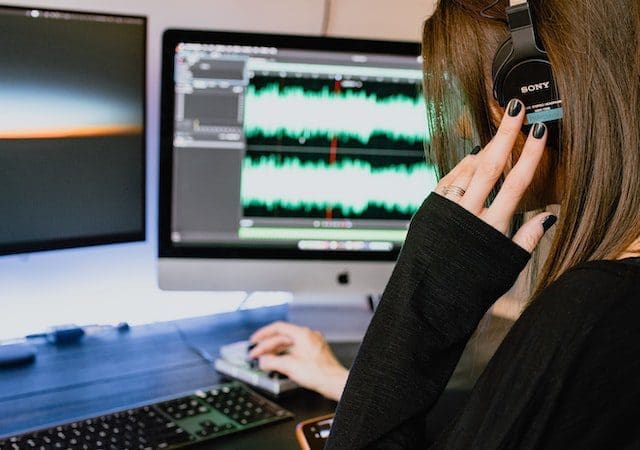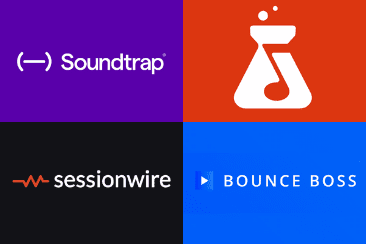Have you ever wondered what skills you need to be an audio mixer or how do you create a master version of a song? What is the difference between the two and what exactly are the mixing and mastering processes? This article will encompass all of these questions and hopefully we will manage to answer them well so you can be competent in both.
I would suggest knowing as much as you can in terms of the technicalities of producing a song before you head on into making one.
Mixing Music Definition
So what does mixing a song mean and why is it an important part of the process? As you may have read in one of my previous articles – how to be an audio mixer, and whereby I go into much further depth there – a mixer is generally going to make the song sound better and in short, it will improve sound quality. As a sound engineer or music producer, this stage of creating music is vital to get right before mastering a track. You will compress the tracks, reduce any unwanted frequencies and balance levels.
Firstly, it is important to mention, once you have arranged the song, in terms of recording the instruments and vocals, and you are happy with it then you can move on to the process of mixing and mastering. There is a difference between audio vs music production whereby one is focused on the recorded sounds whereas music production just refers to the music.
EQ
EQ stands for Equalization, which in mixing terms, manages the frequency of your sound, as you want to reduce them. This will allow the instrument being played or vocals sung to be heard better. However, you must remember to not go too far in eliminating frequencies and even though you are ensuring that the elements you work with sound good in isolation, there will be other instruments/vocals that will add to it, so think about the context in which it is set. You want to choose the best frequencies that will enhance the track.

Compression
There is always going to be a dynamic range to any piece of music you record, so in a sense, compression allows for a more consistent level of range or signal. Those parts of the recording which have higher dynamic range need to be compressed and this is called downward compression. And then of course those parts of the recording that were too soft, can be compressed too and it is called upward compression. It saves time, automates our music for us and creates sonic characteristics to our sound.
Saturation
Some musicians swear by this technique and others leave it alone as it sometimes messes up the track they are working on. In short, saturation adds in frequencies you already have, but if you think it sounds good, then keep it in. You can always remove this process if it doesn’t work for you.
Stereo Image
In audio mixer terms, this is the manipulation of the 180 degree stereo-field and definition of the placement of signals within it. There is a technique whereby you pan the sound left or right or placing them more mono or stereo. Audio engineers previously would have used a more mono speaker system compared to the stereo playback system more commonly used today.
Reverb
Reverb can give the impression of the location of where the sound is taking place, and gives depth to it and at the same time making it sound smoother. You don’t necessarily need this effect, but it is clever at making the audio sound more natural.
The final step is ensuring that your track is not too loud. Try it out on various sound systems like a phone or laptop so you will be able to listen to it as your listeners would and so you can edit it further if this throws up any technical issues. The more you focus on this part of producing the song and the more understanding you have in mixing, the easier the mastering process will be as it will just be more of a case of fine tuning of the track.

What Is Mastering In Music Production?
When you ask us what the mastering music definition is, well it brings together all your previous work and you make those all important tweaks and edits before you finally release it out into the world.
Mastering songs in music production, you will ensure that the song sounds smooth on all sound systems and that the volume is at the right level before you release it. This sounds just like an improvement of what has already been done in mixing, but yes there is not much more to it than that. But let us dig a little deeper into the question you need answering – what does mastering a song mean and how do we actually do it?
You may have heard of AI mastering free services and even though they may take less time and effort, we do believe that your music deserves to have a human touch to create a perfect track or album. However, if you want to know more, Landr, CloudBounce and BandLab offer really great services at super rates. BandLab is a free online mastering service, so look into it, don’t let us deter you.
As a mastering engineer, the way the process works is different from mixing as you are working with just one individual stereo file and balancing it to produce a final piece of music.
Remember the two compliment each other and you cannot have one without the other. Mixing will take more time, so you need decent equipment to be able to do this. Or certainly any good DAW will help you mix for sure. Even though you can ultimately have one person to mix and master a track, you may prefer to use a different engineer for each process. It has to be said that both roles are heavily technical, so it is best for you to employ someone who really knows what they are doing.

How Much Do Mixers And Masters Make?
The average annual salary for mixing engineers is roughly $35k – $164k and the average annual salary for mastering engineers is roughly $22,000 to $143,000.
So you will be able to earn a considerable amount of money if this is the career path you decide to go down. As you can see it can be a fairly lucrative area of the music industry.
Closing Comments
Have you now understood more about the mastered meaning in music and are you now a pro at what mixing music means? Maybe you are a beginner in music production and now there is a role that you are slightly leaning towards in terms of a career, mix vs master? Will you become digital masters or is audio mixing more what you favor?
Get Free Music Distribution and find opportunities to get your music in film, TV, and more through sync licensing. Plus get Music Supervision, Music Publishing, Music Marketing, Artist Development and utilize our Free Artist Websites. Finally, you can amplify your music to those that need to hear it music promotion and professional sharing tool. Try all of this out for yourself by joining Мusic Gateway. Get your free trial, no strings attached.









